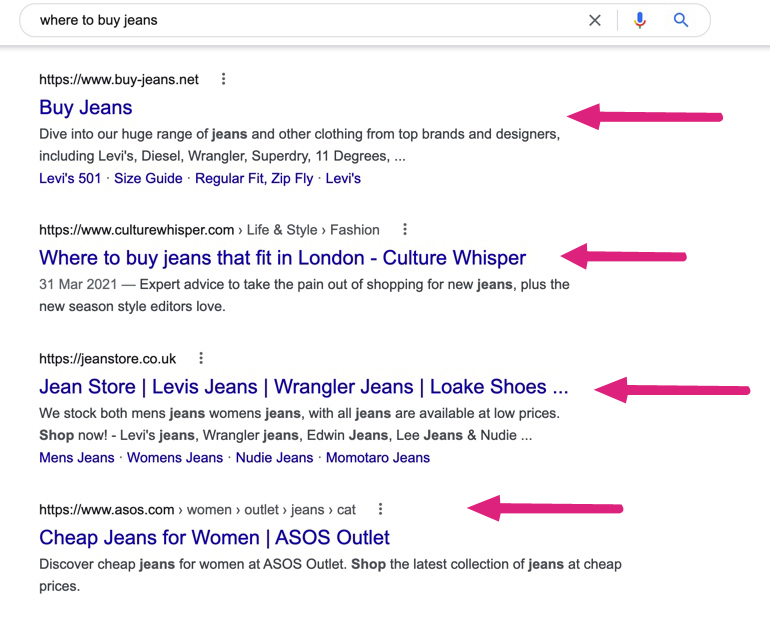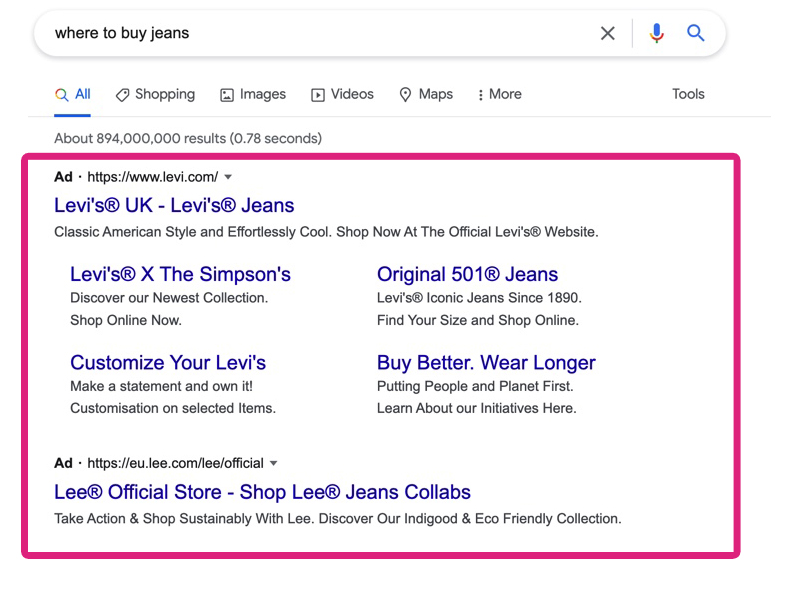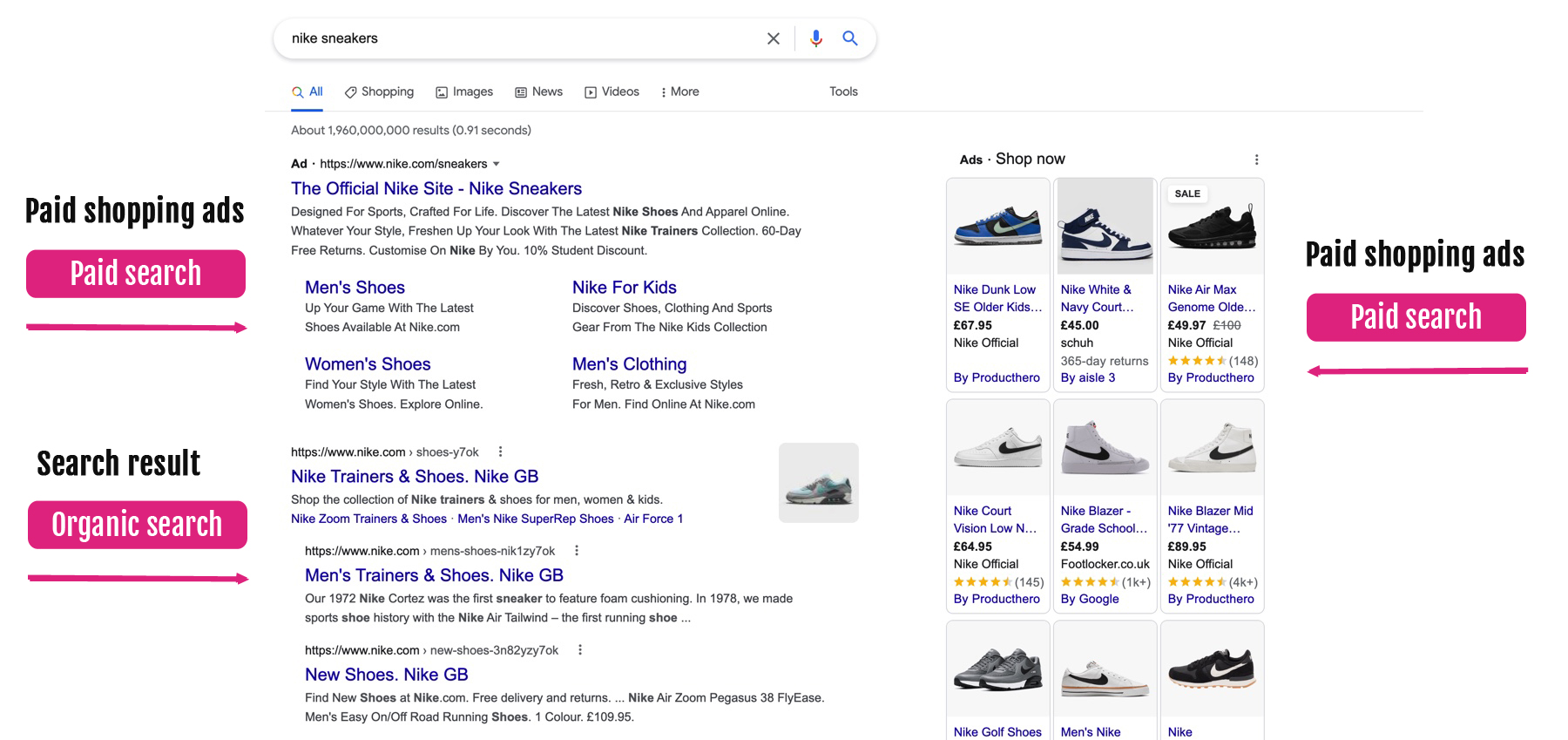The modern day advertising landscape is drastically different from what it used to be in the 60s and 70s, when ads were still traditional. One of these changes was how people discovered new brands through print media like newspapers or magazines rather than on TV commercials today – but this also has changed as well! Nowadays there’s no shortage for online exposure thanks largely due paid search campaigns where advertisers pay only after someone clicks their advertisement ( intrigued by something related?).
Whether you’re a seasoned pro or just getting started, there are many ways to optimize your marketing strategy. One way is by combining the two approaches: instead of viewing them as separate entities with competing goals and methods for reaching those ends actions (a person clicking on one link over another), try thinking about how they can work together in order best achieve yours!
Learn how paid and organic search engine advertising works with this guide. It will help you create a modern, competitive strategy for your company’s marketing needs!
Where does SEO and Paid Ads work best?
Start with SEO
To improve the performance of organic search results, you’ll need to first perform SEO efforts. Before considering paid and/or enhanced keyword use with your SEO strategy though it’s important that all aspects are organized so as not only increase brand awareness but also drive traffic towards advertisements on Bing or Yahoo!
Paying for better rankings won’t work unless advertisers know where they should be advertising which means getting high quality backlinks from authoritative sources pointing at their site – this was once called “blogger outreach.” The key difference now between successful brands versus those who aren’t
When it comes to SEO, the first step is ranking on page one of search results for branded queries. You should also invest in your organic strategy and appear as an authority so you can rank well across many non-brand terms–this will be easierdepending upon industry verticals or if there are unique branding aspects aboutyour company’s product line that make them stand out from competitors
Finance might not sound exciting but investing time into these efforts could yield excellent ROI.
Bring out PPC
With search engine optimization, you can start building your business on top of the foundation that has been established. Once this initial work is done and ranked in organic searches well enough for customers to find them easily through their respective keywords or phrases which they have carefully chosen during our earlier meetings concerning desired target markets; we will then move onto exploring new advertising avenues like paid ads–where there are many options available such as:
- Custom messaging is important for paid search campaigns because you can target different user groups with tailored copy. Test out what words or phrases get the most traction in order to run a campaign that has more engaging content than your typical voice on social media sites like Facebook, Twitter etc., especially if they have large followings already established which means it’s likely people will resonate better when listening directly rather than seeing things posted without any warning first-hand since this isn’t personal but just advertising info worth knowing!
- Custom landing pages are a fantastic way to improve your ranking on Google. As you likely have one main product page that ranks organically in the search engine, sending traffic from other sites and/or campaigns through custom landing pages will give higher performance than if they were sent directly onto this default website!
- Increased TrackingImportant decisions about your business are made with the data. You can get more information from it than you ever thought possible, and use that to improve organic search campaigns in a way so they will rank higher on Google’s SERPS (search engine result pages) faster – possibly even organically!
- Audience/demo specific approach: Organic search cannot be limited to particular audiences beyond what that specific audience might search. However, for paid campaigns you can bid on users in a given location or demographic if they have already been Conversion qualified – which means their behavior indicates an intent of converting at some point soon after finding your site via web searches!
- Building Customer TrustWhen your users see that you rank high on the first page of search results organically, they will have an additional measure for trusting what it is advertising.
Paring SEO & PPC
The more your brand dominates a page, the higher chance you have in winning clicks. By embracing both organic and paid search marketing techniques for webpages on websites – this gives them an edge over competitors because they own SERP real estate which could be crucial when attracting visitors to their site or giving out information about products/services offered through it!
What’s the best way to know how well your ads are doing? Organic search is often a better indicator than paid because it can fill in some gaps from natural results, but both strategies provide an accurate understanding of performance. The more comprehensive this knowledge becomes about what works for different types or campaigns – whether they be Display Advertising on Google Sites; Social Media Ads including Facebook & Twitter advertisements along with Instagram Advertising-the less reliant you’ll feel when things don’t go according plan!
When should you not pair paid with organic?
Recognizing when the pairing of paid and organic search is not suitable can be difficult, but it’s important to do so in order for your company or business’ success. The best partnerships function by acknowledging that there are certain occasions where one element simply doesn’t work better than another – like an event with high traffic volume on its own terms (such as Thanksgiving).
Instant Results
Paid search has been the go-to for brands seeking an immediate return on their investment. But, you need to be mindful that without a strong website foundation in place – which includes having all necessary features and functionality available from day one as well as updating content regularly with fresh information about your company–paid marketing will only take you so far before resulting campaigns are lost due poor performance or abandoned altogether because people don’t find what they’re looking for online anyway!
Organic meanwhile takes time; but it can also yield huge rewards when done right by companies who put effort into building relationships outside
Competitive Keywords
Think of paid advertising as trying to talk with people at a crowded bar. Sure, you can shout and be heard over the noise but it’s not going get your point across effectively – instead, use this opportunity by tightening up what you say so that only those who really want hear from will listen
Organic search engine results are always changing; even large companies have trouble keeping their positions in Google’s ranking system because new algorithms change every month! By contrast though? When done right?! Organic traffic provides an intimate connection between company & customer.
Had you been running paid ads for your company, what would be the best way to go about it? You’ve got a big budget and long runway- why not experiment with A/B testing in order find out exactly what people respond best too!
This is because organic and paid search don’t have to be an either-or situation. SEO will always need attention, but so too does advertising for brands who want more than just traditional internet searches done their way; this includes promoting your brand via social media channels as well!
Start Tracking
To make sure that you are getting the most out of your paid and organic search campaigns, there is one thing to keep an eye on.
-You should stay tuned for how many clicks each keyword gets in order determine if it’s worth running ads with them or not!
- Click-through rates are an indicator of how many people click on your pages, ads and emails compared to the number that views them. The higher this figure is for any given medium or content type – whether it’s online banner Ads seen via desktop computer screens; mobile app transitions into navigation bar while browsing webpages using GPS coordinates as address information–whatever form they take really matters not if we’re talking high quality visitors versus low volume bashers because all those extra eyeballs mean more sales opportunities!
- Keyword rankings can be improved by checking the trends for how many keywords your site is ranking. You’ll also want to pay attention if any particular types or categories have increased in popularity, because that may mean they will soon become even more popular than before!
- Website engagement metrics are important for understanding how visitors interact with your site. These statistics can include data such as views, bounce rates and time spent on a page to give you insight into what’s going on inside the platform!
- Your site should create and monitor conversions. These can be metrics like sales from an ad, email sign-ups caused by content you produce or a traffic increase resulting from videos that are posted on your page to improve conversion rates for potential customers who visit it!
You’ll be able to see the results of your hard work quickly, but know that it might take some time for organic search metrics like rankings and traffic growth because those changes need SEO Agency input before they can happen.
Can Paid Search Hurt SEO?
The two most popular strategies for paid search campaigns are to use keywords or keyword phrases that people might be searching at any given moment. For example, if you know someone who’s thinking about buying a new car but isn’t sure which make and model they should buy then this person’s ideal customer could easily end up being interested in your website because of their uncertainty when browsing online listings! This strategy will allow them more time by assisting potential customers before deciding on anything else- including whether or not there is money left over from one campaign so it can go towards something else entirely
So let’s imagine you have a blog post that is ranking in the first organic position for one of your target keywords. This keyword also appears on top right alongside other ads, which means there are three options when it comes to where they’ll go next – their original search result page; an advertisement paid through Google Adwords Agency or Facebook Ads Agency; OR simply linking back into websites via internal links at various points throughout each site.”
When you need to make sure that people are exposed as much of your company’s content possible, look no further than keywords with this kind of scenario. The more times they see it on their screens and in search results alike means better chances at getting picked up by them!
Balancing Your Paid Search With Organic
The perfect time to use paid and organic search together is now. Why? Well, there’s no better way than having Finsbury Media on your side! With our help you can grow an advertising campaign without worrying about SEO headaches again – just contact us for more information how we do things here at our Digital Marketing Agency.




